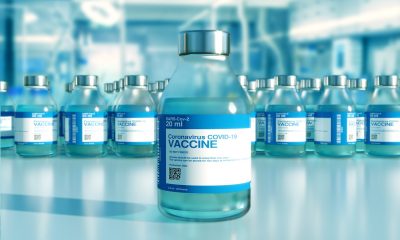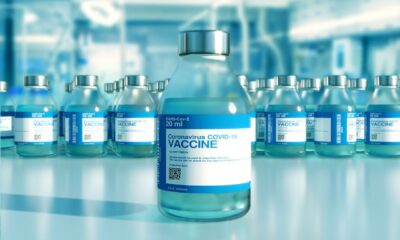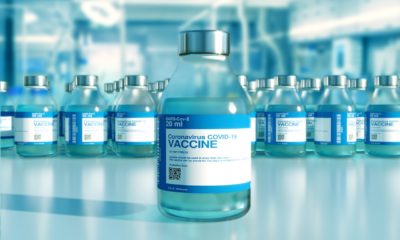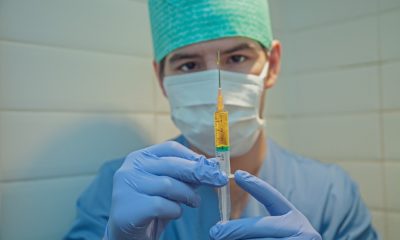Biotech
Curevac announces a possible date for a corona vaccine release
In the fight against the coronavirus pandemic, the Tübingen-based biotech company Curevac intends to start mass phase III tests before the end of the year. The vaccine should then be ready for the market in 2021. The race for a vaccine against COVID-19 is in full swing worldwide, with a large number of companies now focusing on finding a solution to stop the pandemic.
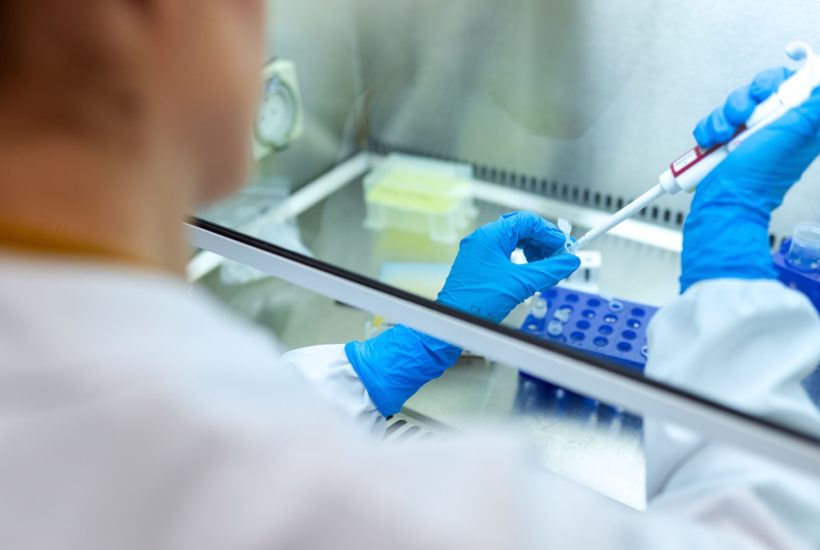
The Tübingen-based biotech company Curevac intends to start a broad field trial on the efficacy of its coronavirus vaccine this year. “We expect to start Phase IIB/III in the fourth quarter,” a company spokesperson said on Monday, September 28th.
According to the plans, the corresponding vaccine candidate will be tested in different dosages on approximately 20,000 to 30,000 volunteers, the Curevac spokesperson said. This phase will probably take “several months”.
If the results are positive, an application for approval will be submitted to the responsible Paul-Ehrlich-Institute. From today’s point of view, the Curevac vaccine could thus “be launched on the market in summer or autumn.”
If you want to read more about the biotech company Curevac and its plans to launch its coronavirus vaccine as early as possible, download for free the Born2Invest mobile app. Our companion app brings you the most important business news and the latest breakthroughs in the biotech sector.
Curevac wants approval as soon as possible for its coronavirus vaccine
However, the vaccine could possibly be available earlier. Depending on the results of Phase IIB/III, an application for conditional approval will also be considered. According to the Paul Ehrlich Institute, conditional approval (“approval subject to special conditions”) is intended for diseases that lead to “serious weakening or even life-threatening” and is initially limited to one year.
Curevac had only started Phase I testing of its coronavirus vaccine in June. The basic tolerability of a vaccine is tested in a group of 10 to 30 people. In Phase II, the immune response after injection is tested and the optimal dose is determined. The size of the test groups is usually extended to 50 to 500 persons.
In the final Phase III test with more than 10,000 subjects, the protective effect of the vaccine is controlled. To accelerate development, Phase II and Phase III may overlap. That is exactly what Curevac plans now.
Similar to the Mainz-based competitor Biontech, for example, the Tübingen-based company has also specialized in the development of messenger nucleic acids (mRNA). In this novel approach, messengers are supposed to bring genetic blueprints for the production of unimaginably tiny amounts of antigens into the cells. The proteins produced should trigger a defense reaction of the immune system, which should then also protect the body against viruses such as the coronavirus SARS-CoV-2.
Corona vaccine: Curevac focuses on lowest possible dosage
Curevac focuses on mRNA at comparatively low doses. One test doses of two to 20 micrograms, said the Curevac spokesman. That would be two to 20 millionths of a gram. The company hopes that the low dosage will lead to particularly good tolerability in the volunteers who will take part in the test. This has also been shown in initial tests during the development of a rabies vaccine. According to the initial results, immunization was already achieved with a quantity of one microgram. In addition, Curevac said that a low dosage enables a considerable quantity of advantages per batch during later production.
Should mRNA specialists such as Curevac or Biontech be successful with their approach, this should also be of far-reaching significance for numerous other areas of application. For example, Curevac is also working on mRNA against yellow fever, malaria, skin and lung cancer.
__
(Featured image by ThisisEngineering RAEng via Unsplash)
DISCLAIMER: This article was written by a third party contributor and does not reflect the opinion of Born2Invest, its management, staff or its associates. Please review our disclaimer for more information.
This article may include forward-looking statements. These forward-looking statements generally are identified by the words “believe,” “project,” “estimate,” “become,” “plan,” “will,” and similar expressions. These forward-looking statements involve known and unknown risks as well as uncertainties, including those discussed in the following cautionary statements and elsewhere in this article and on this site. Although the Company may believe that its expectations are based on reasonable assumptions, the actual results that the Company may achieve may differ materially from any forward-looking statements, which reflect the opinions of the management of the Company only as of the date hereof. Additionally, please make sure to read these important disclosures.
First published in Merkur.de, a third-party contributor translated and adapted the article from the original. In case of discrepancy, the original will prevail.
Although we made reasonable efforts to provide accurate translations, some parts may be incorrect. Born2Invest assumes no responsibility for errors, omissions or ambiguities in the translations provided on this website. Any person or entity relying on translated content does so at their own risk. Born2Invest is not responsible for losses caused by such reliance on the accuracy or reliability of translated information. If you wish to report an error or inaccuracy in the translation, we encourage you to contact us.

-

 Africa1 week ago
Africa1 week agoAir Algérie Expands African Partnerships
-

 Markets3 days ago
Markets3 days agoRising U.S. Debt and Growing Financial Risks
-

 Business1 week ago
Business1 week agoDow Jones Near Record Highs Amid Bullish Momentum and Bearish Long-Term Fears
-

 Africa5 hours ago
Africa5 hours agoCameroon’s Government Payment Delays Exceed 200 Days, Straining Businesses and Public Finances




